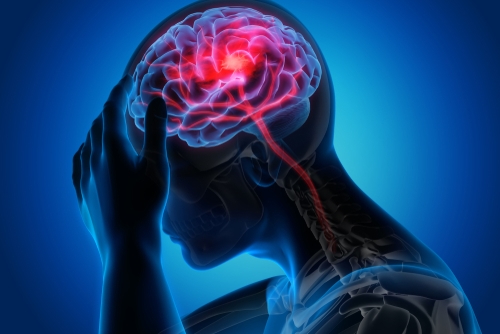What Are The Effects Of Hypertension On The Brain?

Hypertension, commonly known as high blood pressure, is a prevalent cardiovascular condition that affects a significant portion of the global population. Its consequences extend beyond the cardiovascular system and have been implicated in various adverse effects on the brain.
This article aims to explore the effects of hypertension on the brain, shedding light on the increased risk of stroke, cognitive decline, hypotensive encephalopathy, neurodegenerative diseases, and alterations in brain structure and function. Additionally, the role of hypertension in the development of vascular dementia will be examined.
Understanding these effects is crucial in the management and prevention of hypertension, as it can help preserve brain health and reduce the burden of associated neurological conditions. By adopting a comprehensive approach that encompasses both pharmacological interventions and lifestyle modifications, individuals can strive towards maintaining optimal brain health and preventing the detrimental consequences of hypertension.
Key Takeaways
- Hypertension increases the risk of brain-related complications.
- Hypertension impairs brain function.
- Promoting a healthy lifestyle can prevent and improve brain health.
- Regular physical exercise improves blood flow to the brain and reduces hypertension risk.
Understanding Hypertension and its Impact on the Brain
The pathophysiological mechanisms underlying hypertension and its impact on the brain are a subject of extensive research and scientific investigation.
Hypertension, also known as high blood pressure, is a chronic condition characterized by elevated blood pressure in the arteries. It is a major risk factor for cardiovascular diseases and is associated with numerous adverse effects on various organs, including the brain.
Hypertension can lead to structural and functional changes in the brain, such as cerebral small vessel disease, white matter lesions, and reduced cerebral blood flow. These alterations can contribute to cognitive decline, vascular dementia, and an increased risk of stroke.
However, hypertension prevention through lifestyle modifications, such as adopting a healthy diet, regular physical activity, weight management, and stress reduction, can significantly reduce the risk of developing hypertension and its detrimental effects on the brain.
Increased Risk of Stroke
Increased risk of stroke is a significant consequence of elevated blood pressure on cerebral function. Hypertension, or high blood pressure, is a major risk factor for stroke, a potentially life-threatening condition that occurs when the blood supply to the brain is interrupted or reduced. Studies have shown that individuals with hypertension are more likely to experience a stroke compared to those with normal blood pressure levels. The long-term consequences of stroke can be devastating, leading to physical disabilities, cognitive impairments, and even death.
To illustrate the impact of hypertension on stroke risk, a 2 column and 4 row table is presented below:
| Risk Factors for Stroke | Long-term Consequences |
|---|---|
| Hypertension | Physical disabilities |
| Smoking | Cognitive impairments |
| Diabetes | Increased mortality |
| Sedentary lifestyle | Functional limitations |
These risk factors contribute to the increased vulnerability of individuals with hypertension to suffer from strokes. Therefore, it is crucial to manage and control blood pressure levels to reduce the risk of stroke and its long-term consequences.
Cognitive Decline and Hypertensive Encephalopathy
Cognitive decline and hypertensive encephalopathy are closely linked, highlighting the intricate connection between high blood pressure and neurological impairments. Hypertension has been associated with an increased risk of cognitive impairment and the development of neurological symptoms.
Studies have shown that individuals with hypertension are more likely to experience cognitive decline, including difficulties with memory, attention, and executive functioning. Furthermore, hypertensive encephalopathy, a condition characterized by sudden neurological symptoms, can occur as a result of severely elevated blood pressure levels. This condition can lead to symptoms such as confusion, seizures, and even coma.
The underlying mechanisms by which hypertension affects the brain are not fully understood, but it is believed that chronic high blood pressure can cause damage to blood vessels in the brain, leading to reduced blood flow, inflammation, and oxidative stress. These factors contribute to the development of cognitive impairment and hypertensive encephalopathy in individuals with hypertension.
Hypertension and Neurodegenerative Diseases
Research suggests a potential association between hypertension and the progression of neurodegenerative diseases.
Hypertension has been linked to an increased risk of developing Alzheimer’s disease and Parkinson’s disease.
Several studies have demonstrated a positive correlation between hypertension and the incidence of Alzheimer’s disease.
Hypertension can lead to vascular damage, including cerebral small vessel disease, which has been implicated in the development of Alzheimer’s pathology.
Additionally, high blood pressure may contribute to the accumulation of amyloid-beta plaques and neurofibrillary tangles, the hallmark pathologies of Alzheimer’s disease.
Similarly, hypertension has also been implicated in the development and progression of Parkinson’s disease.
Chronic hypertension can lead to impaired cerebral blood flow and oxidative stress, which may contribute to the degeneration of dopaminergic neurons in the substantia nigra, a key characteristic of Parkinson’s disease.
Further research is needed to elucidate the precise mechanisms underlying the association between hypertension and neurodegenerative diseases.
Effects on Brain Structure and Function
One intriguing area of study focuses on the impact of hypertension on the structural and functional aspects of the brain. Researchers have used advanced brain imaging techniques to investigate the effects of hypertension on brain structure and function. These studies have revealed several noteworthy findings:
- Hypertension is associated with changes in brain structure, such as reduced gray matter volume and increased white matter hyperintensities.
- Hypertension can lead to alterations in brain function, specifically affecting cognitive processes such as memory and attention.
- Long-term hypertension may contribute to the development of neurodegenerative diseases, such as Alzheimer’s disease and vascular dementia.
Furthermore, research suggests that hypertension-related brain changes may play a role in the cognitive decline commonly observed in individuals with high blood pressure.
Understanding the specific mechanisms through which hypertension affects brain structure and function could potentially lead to the development of targeted interventions to mitigate these detrimental effects.
The Role of Hypertension in Vascular Dementia
The impact of hypertension on brain structure and function has been extensively studied, and one area of particular interest is its role in the development of vascular dementia.
Vascular dementia is a type of dementia that occurs when there is damage to the blood vessels in the brain, leading to cognitive impairment.
Studies have shown that hypertension is a major risk factor for the development of vascular dementia. Hypertension can lead to damage to the blood vessels in the brain, reducing blood flow and oxygen supply to brain cells.
This can result in cognitive decline, including problems with memory and learning.
The exact mechanisms by which hypertension contributes to cognitive impairment are still being investigated, but it is clear that controlling hypertension is crucial for maintaining brain health and reducing the risk of vascular dementia.
Managing Hypertension to Preserve Brain Health
To effectively safeguard cognitive function, it is imperative to proactively manage and regulate blood pressure, ensuring the preservation of brain health. Hypertension, if left uncontrolled, can have detrimental effects on the brain, including an increased risk of stroke, cognitive decline, and vascular dementia. However, there are several strategies that can be employed to manage hypertension and preserve brain health.
- Preventing hypertension in young adults: Encouraging young adults to adopt a healthy lifestyle is crucial in preventing hypertension. This includes promoting regular physical activity, maintaining a healthy weight, and following a balanced diet low in sodium and saturated fats.
- Lifestyle modifications for managing hypertension: Making lifestyle modifications can help manage hypertension and reduce the risk of brain-related complications. These modifications include regular exercise, adopting a heart-healthy diet, limiting alcohol consumption, quitting smoking, and managing stress levels.
By implementing these strategies, individuals can effectively manage hypertension, reduce the risk of brain-related complications, and promote brain health throughout their lifespan.
Promoting Brain Health and Preventing Hypertension
Promoting a healthy lifestyle and adopting preventive measures can contribute to the preservation of cognitive function and overall brain health. Engaging in brain-boosting activities and making dietary changes are two key strategies to promote brain health and prevent hypertension. Brain-boosting activities, such as puzzles, reading, and learning new skills, stimulate neural connections and enhance cognitive abilities. Additionally, regular physical exercise has been shown to improve blood flow to the brain and reduce the risk of developing hypertension. Dietary changes, such as consuming a balanced diet rich in fruits, vegetables, whole grains, and lean proteins, can help control blood pressure and support brain health. Moreover, reducing sodium intake and limiting the consumption of processed foods can also contribute to maintaining a healthy blood pressure level. By adopting these lifestyle changes, individuals can take proactive steps to prevent hypertension and promote optimal brain health.
| Brain-Boosting Activities | Dietary Changes |
|---|---|
| Puzzles | Balanced diet |
| Reading | Fruits and vegetables |
| Learning new skills | Whole grains |
| Lean proteins |
Frequently Asked Questions
Can hypertension be completely cured or reversed?
Hypertension cannot be completely cured or reversed, but it can be effectively managed through lifestyle modifications and medication. These interventions aim to control blood pressure levels and reduce the risk of complications associated with hypertension, including damage to the brain.
What are the long-term effects of hypertension on brain health?
The long-term effects of hypertension on brain health include impaired cognitive function and structural changes in the brain. Hypertension can lead to decreased brain volume, white matter lesions, and an increased risk of stroke and dementia.
Does hypertension affect brain development in children?
Hypertension in children can have detrimental effects on brain development. Studies have shown that high blood pressure can impair cognitive function and cause structural abnormalities in the brain, leading to long-term negative consequences.
How does hypertension contribute to the development of neurodegenerative diseases?
Hypertension is associated with an increased risk of developing neurodegenerative diseases, such as Alzheimer’s and Parkinson’s. The mechanisms behind this link are not yet fully understood, but chronic inflammation and oxidative stress are thought to play a role.
Are there any specific dietary or lifestyle changes that can help reduce the impact of hypertension on the brain?
Dietary changes and lifestyle modifications can help reduce the impact of hypertension on the brain. These include adopting a low-sodium diet, increasing physical activity, quitting smoking, limiting alcohol consumption, and managing stress levels.








